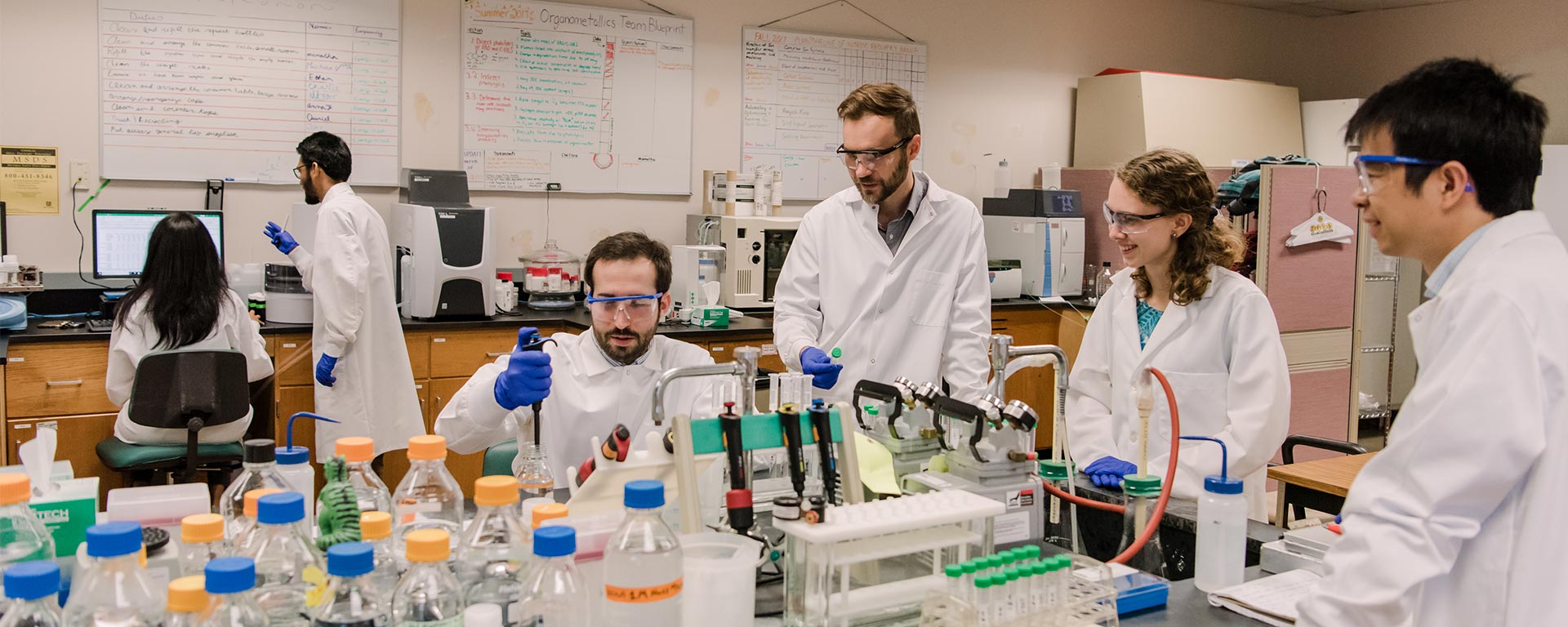
Overview
Environmental engineers in the department are actively researching the fate and impact of pharmaceuticals in wastewater, analysis and remediation of toxic pollutants in soils and other environments, the processes governing atmospheric chemistry and aerosol pollution, and advanced real-time modeling and monitoring of groundwater-surface water conditions.
The PhD degree is substantially heavier in research compared with the MS degree and is geared towards successfully mastering a body of skills and knowledge in preparation for a career as an independent scholar. This degree is recommended for those who expect to engage in a professional career in research, teaching, or technical work of an advanced nature.
The PhD degree is awarded only upon sufficient evidence of high attainment in scholarship and the ability to engage in independent research in the field of environmental engineering.
Required Prior Coursework
Applicants to the Environmental Engineering graduate programs should ensure prior coursework covers the topics listed for the courses below. Top applicants have grades of a ‘B’ or above in courses covering these topics:
- Organic Chemistry (CHEM 351)
- Multivariable Calculus (MATH 251)
- Differential Equations (MATH 225)
- Calculus-Based Physics (PHYS 121 & PHYS 122)
Students looking to pursuing an ENEN PhD are not required to have an undergraduate degree in an engineering discipline. All applicants, no matter what undergraduate degree one has completed, must have earned a B or better courses covering the topics listed above.
The basic components of the Environmental Engineering (ENEN) PhD degree are:
- Completion 21 credits of graduate coursework, including core curriculum
- Successful completion of written qualifying report and oral presentation
- Successful preparation and oral defense of a written dissertation proposal
- Minimum of 18 credit-hours of doctoral dissertation research (ENEN 899)
- Public oral defense and submission of written doctoral dissertation
Jahir Antonio Batista Andrade – ’23 Ph.D., Environmental Engineering
Research
Students seeking a PhD are also required to pass a written qualifying examination. The PhD candidate must take at least 18 hours of dissertation credits (ENEN 899) and produce a dissertation that demonstrates a significant contribution to the state-of-the-art in the topic selected. The PhD dissertation committee is required to include at least one external member. The major milestones for PhD program include: qualifying exam, proposal defense and final dissertation defense.
Environmental Engineering Faculty Research Areas Include:
- Aerosol Science
- Atmospheric Chemistry
- Automated Reasoning
- Environmental Risk Assessment
- Machine Learning
- Pollutant Fate and Transport
- Resource Recovery
- Soil and Sediment Remediation
- Urban Hydrology
- Water and Wastewater Treatment
- Water Quality
- Watershed Modeling
Coursework
The completion of a minimum of 21 credit-hours of graduate courses beyond the bachelor’s degree (some of which can come from MS degree). The core curriculum includes 12 credits of coursework. The specific course work for each student is determined by the candidate’s PhD committee. These courses would be drawn from Departments within the College of Engineering and the College of Arts and Science (e.g., Department of Chemistry and Biochemistry). PhD students can also take classes from the MEES program (several faculty are members of the MEES program).
Course descriptions are found in the UMBC Course Catalog. A grade point average of 3.0 in all courses must be maintained to remain in good standing with the Graduate School. Courses taken to fulfill the requirements of the program must be approved in advance by the Chemical Engineering graduate program director and by the student’s advisor, if one has been selected.
ENEN Core Curriculum
4 discipline-specific courses from the following options:
- ENEN 610 Environmental Chemistry
- ENEN 612 Environmental Physicochemical Processes
- ENEN 613 Environmental Organic Chemistry
- ENEN 614 Environmental Biological Processes
- ENEN 621 Groundwater Hydrology
- ENEN 660 Air Pollution
- ENCH 630 Transport Phenomena
- ENME 645 Applied Computational Thermo/Fluids
- GES 616 Physical Hydrology
- MATH 441 Introduction to Numerical Analysis
Learn More
Admission requirements and procedures correspond to the requirements set forth by the UMBC Graduate School. Information on our Fee Free Application available here.